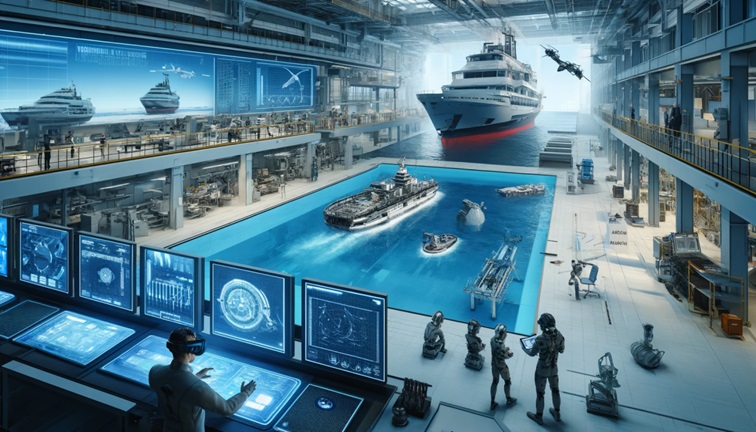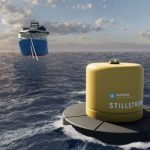Marine Engineering is undergoing significant transformation due to advancements in technology, sustainability initiatives, and automation. From clean energy to autonomous ships, here are 10 emerging trends in Marine Engineering..
1. How is Marine Engineering contributing to sustainable shipping?
Marine engineers are driving sustainable shipping by developing cleaner technologies such as alternative fuels, energy-efficient ship designs, and exhaust treatment systems. Innovations like LNG (liquefied natural gas), hydrogen fuels, and hybrid propulsion systems are reducing the carbon footprint of ships. This push towards green shipping is essential in meeting global environmental regulations and combating climate change.
2. What role does automation play in the future of marine vessels?
Automation in marine vessels is increasing with the development of autonomous ships and remote-controlled fleets. Advanced AI and navigation systems allow ships to operate with minimal human intervention, improving safety, reducing labor costs, and enhancing operational efficiency. The trend of unmanned surface vessels (USVs) and autonomous underwater vehicles (AUVs) is also expanding for military and research applications.
3. How is AI being used in Marine Engineering?
Artificial Intelligence (AI) is enhancing marine operations by improving predictive maintenance, optimizing fuel consumption, and assisting in route planning. AI systems can analyze vast amounts of data from ship sensors to detect issues early, preventing costly breakdowns. AI-driven navigation systems also contribute to safer and more efficient shipping by adjusting routes based on real-time environmental data.
4. What impact does renewable energy have on the marine industry?
The marine industry is increasingly turning to renewable energy sources such as wind, solar, and wave energy to power ships and offshore platforms. Wind-assisted propulsion and solar panels are being integrated into vessels to reduce fuel consumption and emissions. Marine engineers are also exploring the potential of ocean-based energy farms, which harness wave and tidal power to generate electricity.
5. How is Marine Engineering adapting to stricter environmental regulations?
Marine engineers are innovating to comply with stricter environmental regulations like the International Maritime Organization’s (IMO) 2020 sulfur cap and other emission reduction goals. New technologies such as scrubbers, ballast water treatment systems, and carbon capture solutions are helping ships meet environmental standards. These trends ensure the maritime industry is aligned with global sustainability targets.
6. What is the role of hybrid propulsion systems in Marine Engineering?
Hybrid propulsion systems are becoming increasingly popular in marine engineering, combining traditional diesel engines with electric motors. These systems reduce fuel consumption, lower emissions, and offer greater flexibility in operations. Hybrid vessels can switch between fuel sources based on the conditions, allowing for more efficient and environmentally friendly maritime operations.
7. How is big data transforming marine operations?
Big data is revolutionizing marine operations by providing real-time insights into vessel performance, route optimization, and fuel efficiency. Marine engineers and ship operators are using data analytics to monitor ship conditions, predict maintenance needs, and reduce operational costs. Big data also enhances safety by identifying potential hazards through continuous monitoring of weather patterns and traffic.
8. What is the significance of underwater robotics in Marine Engineering?
Underwater robotics is an emerging trend that is enhancing marine exploration, inspection, and maintenance. Remotely Operated Vehicles (ROVs) and Autonomous Underwater Vehicles (AUVs) are being used for tasks such as pipeline inspections, underwater repairs, and oceanographic research. These technologies reduce the need for divers in hazardous environments and increase the efficiency of underwater operations.
9. How is Marine Engineering supporting the development of offshore wind farms?
Marine engineers play a vital role in the design and construction of offshore wind farms, which are a key part of the renewable energy sector. Engineers are developing advanced floating platforms and foundations that can support wind turbines in deep waters. Offshore wind farms are expanding due to the demand for clean energy, with marine engineers ensuring that the infrastructure is safe, durable, and efficient.
10. How are digital twins used in Marine Engineering?
Digital twins are virtual models of physical ships or marine systems, allowing engineers to simulate performance, monitor operations, and optimize maintenance. These models enable real-time monitoring of ship conditions, fuel efficiency, and structural integrity. Digital twins are helping marine engineers identify potential issues before they become critical, reducing downtime and improving the overall lifecycle of ships.
Conclusion
Marine Engineering is evolving rapidly, driven by trends such as automation, renewable energy, AI, and sustainable shipping practices. As the industry adapts to technological advancements and environmental challenges, marine engineers will continue to shape the future of the maritime world. Staying informed about these trends is essential for anyone looking to navigate the seas of tomorrow.


